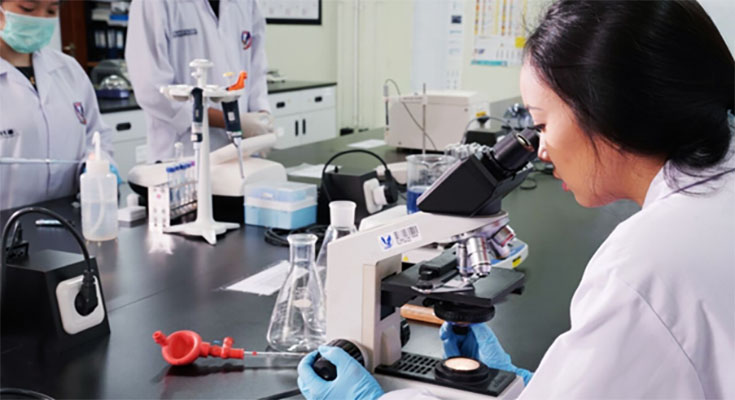The evolution of Indonesia’s pharmaceutical sector is pivotal to the nation’s overall healthcare advancement. Developing and Improving Indonesian Pharmaceutical Development is not merely a goal but a necessity to ensure the efficacy, accessibility, and safety of medications for the Indonesian population. pafikotarangkasbitung.org This endeavor involves a multifaceted approach that includes enhancing research capabilities, modernizing production processes, and fortifying regulatory frameworks.
Strengthening Research and Innovation
A cornerstone of Developing and Improving Indonesian Pharmaceutical Development is the advancement of research and innovation. The integration of cutting-edge research methodologies and technologies can significantly propel the pharmaceutical industry forward. Investing in research infrastructure, such as state-of-the-art laboratories and research facilities, is essential for fostering an environment where groundbreaking discoveries can thrive.
Furthermore, fostering collaborations between academic institutions, pharmaceutical companies, and research organizations can stimulate innovation. By creating synergies between these entities, Indonesia can leverage diverse expertise and resources to develop new therapies, optimize existing treatments, and explore novel drug delivery systems.
Enhancing Drug Production Capabilities
The enhancement of drug production capabilities is integral to Developing and Improving Indonesian Pharmaceutical Development. Modernizing pharmaceutical manufacturing processes ensures the production of high-quality medicines that meet international standards. This involves adopting advanced manufacturing technologies, such as continuous manufacturing and automation, which can increase efficiency and consistency.
Additionally, strengthening the local pharmaceutical supply chain is crucial. Ensuring the availability of raw materials, improving logistics, and reducing dependency on imports can help mitigate disruptions and ensure a steady supply of essential medications. By investing in local production facilities and supporting the development of domestic pharmaceutical companies, Indonesia can bolster its capacity to meet both local and global demands.
Advancing Regulatory Frameworks
Robust regulatory frameworks are fundamental to Developing and Improving Indonesian Pharmaceutical Development. Effective regulation ensures that pharmaceuticals are safe, effective, and of high quality. Enhancing regulatory practices involves updating and streamlining drug approval processes to keep pace with scientific advancements and global standards.
Moreover, strengthening the capacity of regulatory agencies to conduct rigorous evaluations and inspections is essential. Implementing transparent and efficient regulatory procedures helps build trust in the pharmaceutical industry and ensures that medications are safe for public use.
Promoting Quality Assurance
Quality assurance is a critical component of Developing and Improving Indonesian Pharmaceutical Development. Establishing stringent quality control measures at every stage of the drug development and manufacturing process ensures that pharmaceuticals meet the highest standards of safety and efficacy. This includes rigorous testing and validation of raw materials, intermediate products, and final formulations.
Furthermore, adopting international quality management systems, such as Good Manufacturing Practices (GMP) and Good Laboratory Practices (GLP), can enhance the credibility and competitiveness of Indonesian pharmaceutical products. By adhering to these standards, Indonesian pharmaceutical companies can gain recognition in global markets and improve their reputation for quality.
Encouraging Public-Private Partnerships
Public-private partnerships (PPPs) are instrumental in Developing and Improving Indonesian Pharmaceutical Development. Collaborations between government agencies, private sector companies, and non-governmental organizations can drive progress in the pharmaceutical sector. These partnerships can facilitate the sharing of knowledge, resources, and expertise, leading to more effective solutions and innovations.
For instance, PPPs can support initiatives such as vaccine development, drug affordability programs, and public health campaigns. By leveraging the strengths of various stakeholders, Indonesia can address critical healthcare challenges and improve the overall effectiveness of its pharmaceutical sector.
Expanding Access to Medicines
Expanding access to medicines is a fundamental goal of Developing and Improving Indonesian Pharmaceutical Development. Ensuring that essential medications are affordable and accessible to all segments of the population is crucial for improving public health outcomes. This involves implementing strategies to reduce drug prices, enhance distribution networks, and support programs that provide medications to underserved areas.
Additionally, promoting the use of generic medicines can play a significant role in increasing access to affordable treatments. By encouraging the production and adoption of high-quality generics, Indonesia can reduce healthcare costs and make essential medications more available to its citizens.
Fostering Workforce Development
A skilled and knowledgeable workforce is vital to Developing and Improving Indonesian Pharmaceutical Development. Investing in education and training programs for pharmaceutical professionals ensures that they are equipped with the latest knowledge and skills required to excel in their roles. This includes providing opportunities for specialized training in areas such as drug development, clinical trials, and regulatory affairs.
Moreover, supporting career development and continuing education for pharmacists and other pharmaceutical professionals helps maintain a high standard of practice and fosters innovation within the industry. By cultivating a talented workforce, Indonesia can drive progress and ensure the continued advancement of its pharmaceutical sector.
Addressing Public Health Needs
Addressing public health needs is an essential aspect of Developing and Improving Indonesian Pharmaceutical Development. Identifying and prioritizing areas where pharmaceutical interventions can have the greatest impact, such as chronic disease management, infectious disease control, and maternal and child health, ensures that the sector addresses the most pressing health challenges.
Collaborating with public health organizations and conducting needs assessments can help identify gaps in healthcare services and guide the development of targeted pharmaceutical solutions. By aligning pharmaceutical development efforts with public health priorities, Indonesia can improve health outcomes and enhance the effectiveness of its healthcare system.
Conclusion
In conclusion, developing and Improving Indonesian Pharmaceutical Development requires a comprehensive approach that encompasses research and innovation, drug production capabilities, regulatory frameworks, quality assurance, public-private partnerships, access to medicines, workforce development, and public health needs. By addressing these key areas, Indonesia can advance its pharmaceutical sector, enhance the quality of healthcare, and improve the well-being of its population. The commitment to progress and excellence in pharmaceutical development will not only benefit Indonesia but also position the country as a significant player in the global pharmaceutical arena.










